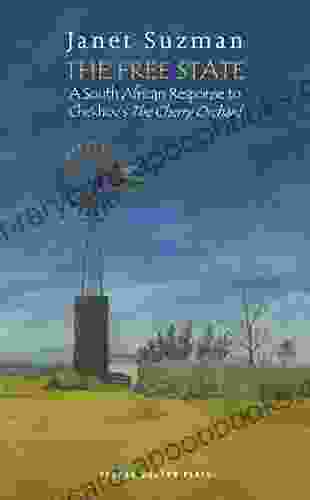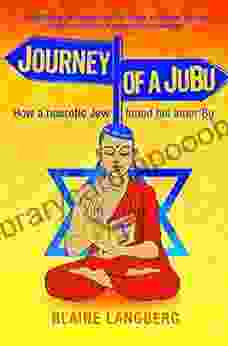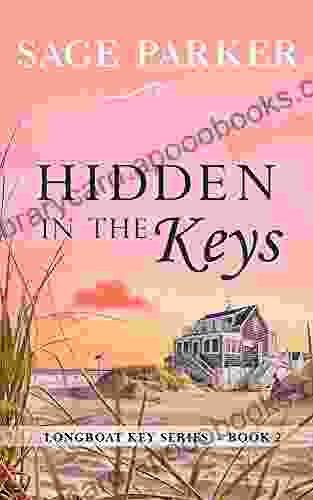South African Response to Chekhov's The Cherry Orchard: A Critical Analysis

4 out of 5
| Language | : | English |
| File size | : | 796 KB |
| Text-to-Speech | : | Enabled |
| Screen Reader | : | Supported |
| Enhanced typesetting | : | Enabled |
| Print length | : | 132 pages |
Anton Chekhov's masterpiece, The Cherry Orchard, has been a source of inspiration and controversy for generations of theatre practitioners. Its themes of loss, change, and the clash between tradition and modernity have resonated with audiences around the world. In South Africa, The Cherry Orchard has a particularly rich history, having been performed and interpreted in a variety of ways since its first production in 1954.
This article provides a comprehensive analysis of the South African response to Chekhov's The Cherry Orchard. It explores the play's reception in South Africa, its influence on South African theatre, and its relevance to the country's socio-political context.
The Reception of The Cherry Orchard in South Africa
The Cherry Orchard was first performed in South Africa in 1954 by the University of Cape Town Drama Department. The production was directed by Leonard Schach and featured a cast of white actors. The play was generally well-received by critics, who praised its acting, direction, and design.
However, some critics also noted the play's lack of relevance to the South African context. They argued that the play's themes of loss and change did not speak to the experiences of black South Africans, who were struggling against apartheid.
Despite these criticisms, The Cherry Orchard continued to be performed in South Africa throughout the apartheid era. In 1976, the play was staged by the Market Theatre in Johannesburg, a theatre company founded by anti-apartheid activists. This production was directed by Barney Simon and featured a cast of black actors.
The Market Theatre's production of The Cherry Orchard was a critical and commercial success. It ran for over a year and was seen by thousands of people. The production was praised for its powerful performances and its incisive social commentary.
The Market Theatre's production of The Cherry Orchard was a watershed moment in South African theatre. It showed that black South Africans could produce high-quality theatre that was relevant to their own experiences. It also helped to raise awareness of the apartheid regime and its impact on the lives of black South Africans.
The Influence of The Cherry Orchard on South African Theatre
The Cherry Orchard has had a profound influence on South African theatre. It has been staged by a variety of theatre companies, including the Market Theatre, the Baxter Theatre Centre, and the Fugard Theatre. The play has also inspired a number of South African playwrights, including Athol Fugard, Zakes Mda, and Mbongeni Ngema.
South African theatre practitioners have been drawn to The Cherry Orchard because of its themes of loss, change, and social justice. These themes resonate with the experiences of many South Africans, who have witnessed firsthand the devastating effects of apartheid and colonialism.
South African productions of The Cherry Orchard have often been used to explore the country's socio-political context. For example, Barney Simon's 1976 production of the play was set against the backdrop of the Soweto Uprising. This production highlighted the parallels between the plight of the characters in The Cherry Orchard and the struggles of black South Africans under apartheid.
The Relevance of The Cherry Orchard to South Africa Today
The Cherry Orchard remains relevant to South Africa today. The play's themes of loss, change, and social justice continue to resonate with many South Africans.
South Africa is a country that is still struggling with the legacy of apartheid. The country has made great progress since the end of apartheid, but many challenges remain. Poverty, inequality, and violence are still major problems.
The Cherry Orchard can help us to understand the challenges that South Africa faces today. The play shows us how loss and change can be both destructive and transformative. It also shows us how social justice is essential for a truly humane society.
The Cherry Orchard is a masterpiece of world theatre. It is a play that speaks to the human condition in a profound way. The play has been especially relevant to South Africa, where it has been used to explore the country's socio-political context.
South African theatre practitioners have been drawn to The Cherry Orchard because of its themes of loss, change, and social justice. These themes resonate with the experiences of many South Africans, who have witnessed firsthand the devastating effects of apartheid and colonialism.
South African productions of The Cherry Orchard have often been used to explore the country's socio-political context. For example, Barney Simon's 1976 production of the play was set against the backdrop of the Soweto Uprising. This production highlighted the parallels between the plight of the characters in The Cherry Orchard and the struggles of black South Africans under apartheid.
The Cherry Orchard remains relevant to South Africa today. The play's themes of loss, change, and social justice continue to resonate with many South Africans. The play can help us to understand the challenges that South Africa faces today and to work towards a better future.
4 out of 5
| Language | : | English |
| File size | : | 796 KB |
| Text-to-Speech | : | Enabled |
| Screen Reader | : | Supported |
| Enhanced typesetting | : | Enabled |
| Print length | : | 132 pages |
Do you want to contribute by writing guest posts on this blog?
Please contact us and send us a resume of previous articles that you have written.
 Book
Book Novel
Novel Page
Page Chapter
Chapter Text
Text Story
Story Genre
Genre Reader
Reader Library
Library Paperback
Paperback E-book
E-book Magazine
Magazine Newspaper
Newspaper Paragraph
Paragraph Sentence
Sentence Bookmark
Bookmark Shelf
Shelf Glossary
Glossary Bibliography
Bibliography Foreword
Foreword Preface
Preface Synopsis
Synopsis Annotation
Annotation Footnote
Footnote Manuscript
Manuscript Scroll
Scroll Codex
Codex Tome
Tome Bestseller
Bestseller Classics
Classics Library card
Library card Narrative
Narrative Biography
Biography Autobiography
Autobiography Memoir
Memoir Reference
Reference Encyclopedia
Encyclopedia Thomas Abbott
Thomas Abbott D W Curtis
D W Curtis Stacey Marie Brown
Stacey Marie Brown Amy Walsh
Amy Walsh Amanda Moore
Amanda Moore Naima Simone
Naima Simone Renaada Williams
Renaada Williams Jo Ann Cavallo
Jo Ann Cavallo Leni Levenson Wiener
Leni Levenson Wiener Steven Torriano Berry
Steven Torriano Berry Chris Saade
Chris Saade Ethan Kross
Ethan Kross Sonya Durant
Sonya Durant Gallagher Lawson
Gallagher Lawson Raymond E Feist
Raymond E Feist Uk Jung
Uk Jung Sarah Mittlefehldt
Sarah Mittlefehldt Annie Keary
Annie Keary David E Wilkins
David E Wilkins Andrew Bi
Andrew Bi
Light bulbAdvertise smarter! Our strategic ad space ensures maximum exposure. Reserve your spot today!
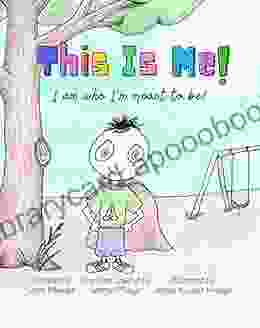
 Stuart BlairAutism Unraveled: A Comprehensive Guide for Children, Parents, and Caregivers
Stuart BlairAutism Unraveled: A Comprehensive Guide for Children, Parents, and Caregivers Bernard PowellFollow ·19k
Bernard PowellFollow ·19k Neal WardFollow ·18.8k
Neal WardFollow ·18.8k Ruben CoxFollow ·6.4k
Ruben CoxFollow ·6.4k Edgar Allan PoeFollow ·17.6k
Edgar Allan PoeFollow ·17.6k Ray BlairFollow ·14.3k
Ray BlairFollow ·14.3k Ike BellFollow ·17.7k
Ike BellFollow ·17.7k Geoffrey BlairFollow ·6.5k
Geoffrey BlairFollow ·6.5k Alex FosterFollow ·11.9k
Alex FosterFollow ·11.9k

 Roald Dahl
Roald DahlImmerse Yourself in a Mesmerizing Tapestry of Creativity:...
Prepare to be captivated by "Spectra," an...

 Clarence Brooks
Clarence BrooksUnleash Your Inner Taylor with Red Piano Vocal Guitar:...
Embrace the Red Era...

 Jeffrey Hayes
Jeffrey HayesUnlock Your Child's Academic Potential: A Comprehensive...
In today's rapidly changing...
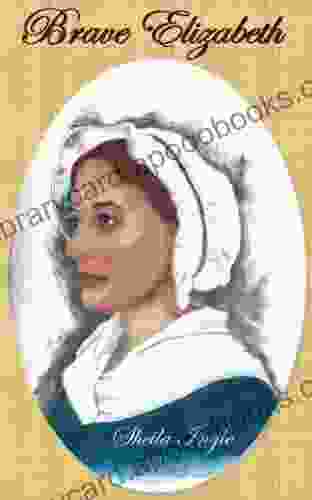
 William Golding
William GoldingBrave Elizabeth: A Captivating Tale of Resilience and...
Immerse Yourself in a Riveting Historical...
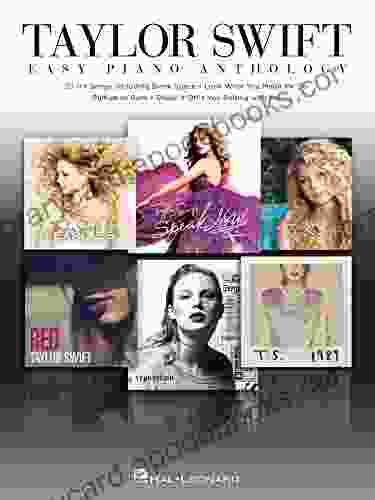
 Curtis Stewart
Curtis StewartUnveiling the Heartfelt Melodies of Taylor Swift: A...
Step into the enchanting world of Taylor...
4 out of 5
| Language | : | English |
| File size | : | 796 KB |
| Text-to-Speech | : | Enabled |
| Screen Reader | : | Supported |
| Enhanced typesetting | : | Enabled |
| Print length | : | 132 pages |


